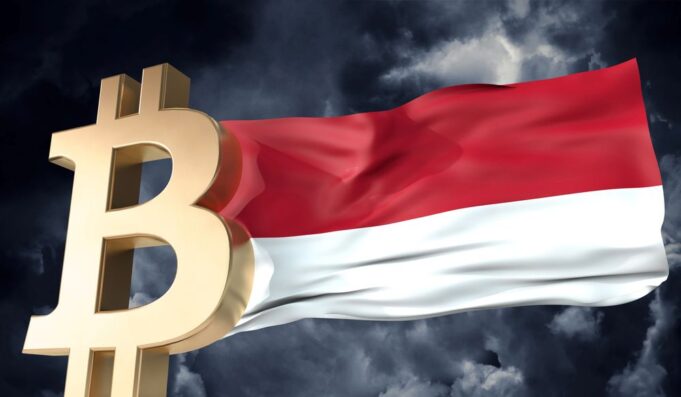Indonesia’s cryptocurrency regulatory body, the Commodity Futures Trading Regulatory Agency (Bappebti), has extended the deadline for crypto exchanges to comply with new licensing regulations. Initially set for October 2024, the deadline has been pushed to late November. It will allow exchanges more time to meet the Physical Crypto Asset Traders’s (PFAK) license requirements. The extension comes at a pivotal moment as Indonesia continues to enhance its regulatory framework for the crypto industry. It added a notable new provision: legal entities, including corporations and businesses, are now permitted to trade in digital assets. This marks a significant shift in the country’s approach to crypto regulation, likely to increase institutional participation in the market.
Navigating New Regulatory Requirements
The PFAK license is essential for exchanges that want to operate legally in Indonesia’s growing cryptocurrency market. The license requires exchanges to fulfill several compliance obligations, including joining the Futures Exchange and the Crypto Futures Clearing House. These measures aim to standardize and safeguard the trading environment, ensuring that exchanges adhere to strict Know Your Transaction (KYT) standards. These will help combat illicit activities such as money laundering and terrorist financing.
Oscar Darmawan, CEO of INDODAX, Indonesia’s largest crypto exchange, expressed support for the extension. He emphasized that it provides much-needed time for exchanges to meet the stringent requirements. INDODAX, among other exchanges, is in the process of obtaining full validation from Bappebti and complying with all necessary legal obligations.
Broadening Market Access: Legal Entities Join the Game
One of the most significant updates within Bappebti’s regulatory shift is the inclusion of legal entities in the crypto trading ecosystem. Previously, only individuals were allowed to trade cryptocurrencies in Indonesia. The new rules, outlined in Bappebti Regulation No. 9 of 2024, now allow businesses and institutional investors to participate in the digital asset market. This is expected to significantly broaden the scope of participation and liquidity within the market.
This regulatory change opens the door for greater institutional involvement. That could elevate Indonesia’s position as a key player in the global cryptocurrency space. Legal entities often bring higher trading volumes and capital into the market, fostering liquidity and stability. This change could attract foreign investors and potentially reshape the dynamics of Indonesia’s crypto landscape, moving it beyond a retail-centric market to one that is more institutionally driven.
Challenges and Future Outlook
While the extended deadline and the inclusion of institutional players are positive developments, crypto exchanges in Indonesia still face considerable challenges. The licensing process involves rigorous compliance standards, including agreements with local authorities like the Directorate General of Population and Civil Registration (Ditjen Dukcapil), which oversees identity verification processes. Failure to meet these requirements could result in license revocation, hindering exchanges from operating legally in Indonesia.
Bappebti’s decision to extend the deadline reflects an acknowledgment of the complexities involved in meeting these regulatory demands, as well as the fast-evolving nature of the crypto industry. With a strong regulatory framework in place, Indonesia is positioning itself to harness the benefits of a well-regulated crypto market. At the same time, it ensures investor protection and compliance with international standards.
>>> Read more: Europe Bitcoin Ban: ECB Urges Regulation Over Wealth Inequality
As Indonesia continues to refine its crypto regulations, the market is set for substantial growth. It will be driven by increased institutional participation and a clearer regulatory landscape. The extended deadline provides exchanges with the opportunity to fully integrate into the regulated environment, while the inclusion of legal entities in crypto trading marks a new chapter for the industry in Indonesia. These changes are likely to transform its crypto sector into a more mature and diverse market, ready to attract institutional capital and further solidify its standing in the global digital asset space.
Readers’ frequently asked questions
What specific benefits do institutional investors bring to Indonesia’s cryptocurrency market?
Institutional investors bring several important advantages to any market, including the cryptocurrency space. In the case of Indonesia, the inclusion of legal entities such as corporations and business enterprises in crypto trading can significantly boost liquidity. With higher liquidity, market volatility tends to decrease, as institutional trades often involve larger volumes, which stabilizes price fluctuations. Furthermore, institutional investors often have a long-term investment outlook, which can contribute to a more mature and stable market. Their participation also signals credibility and may attract more capital from both domestic and international sources. This influx of capital can help develop new financial products and services. For example, crypto futures or exchange-traded funds (ETFs) could further enrich the trading ecosystem. Institutional presence can also spur innovations in security measures, compliance practices, and operational transparency, as these entities are typically subject to stringent regulations and due diligence practices in traditional finance.
How will the extended deadline impact Indonesia’s competitiveness in the global crypto market?
The extension of the licensing deadline reflects Indonesia’s recognition of the fast-evolving nature of the crypto industry and its effort to build a modern, adaptable regulatory framework. This move could have positive implications for Indonesia’s competitiveness on the global stage. By allowing more time to meet regulatory requirements, Indonesia is ensuring that its crypto exchanges are well-prepared to handle institutional trading, which could attract more foreign investors. Moreover, regulating the market without stifling innovation positions Indonesia a crypto-friendly jurisdiction. It encourages growth while ensuring legal protections are in place. In the long term, this regulatory clarity and gradual introduction of institutional investors may increase the country’s appeal as a regional crypto hub. It could compete with markets such as Singapore and Hong Kong.
What role does the Directorate General of Population and Civil Registration (Ditjen Dukcapil) play in Indonesia’s crypto regulatory framework?
Ditjen Dukcapil plays a critical role in ensuring transparency and compliance in Indonesia’s crypto market. As part of the extended regulatory requirements, crypto exchanges must establish agreements with Ditjen Dukcapil, which oversees population data and civil registration in Indonesia. This partnership allows exchanges to implement effective Know Your Customer (KYC) and Know Your Transaction (KYT) standards. By verifying traders’ identities and ensuring their transactions comply with regulatory frameworks, Ditjen Dukcapil helps mitigate the risks of illegal activities such as fraud, money laundering, and terrorism financing. This collaboration strengthens the regulatory ecosystem as it provides secure identity verification processes. These are crucial for maintaining trust and security in both retail and institutional crypto trading.
What Is In It For You? Action Items You Might Want to Consider
Evaluate Institutional Entry Opportunities
After regulatory changes, Indonesia will allow legal entities to participate in cryptocurrency trading. Now might be the perfect time to explore opportunities in institutional-level products. If you’re trading or investing on crypto exchanges in Indonesia, assess how this shift might affect liquidity and market stability. Consider adjusting your strategies to align with potential market growth spurred by the participation of larger institutional investors. It can lead to more reliable market trends.
Stay Ahead of Compliance Developments
If you’re trading in the Indonesian market, it’s crucial to keep up-to-date with the new compliance requirements. The extended deadline for exchanges to obtain the PFAK license offers a temporary reprieve. However, you should ensure you’re using licensed platforms or those that will meet the November deadline. Non-compliant exchanges might face operational issues that could affect your trading activities. Choose platforms that demonstrate commitment to regulatory standards and prioritize transparency.
Prepare for Reduced Volatility
Institutional investors tend to stabilize markets due to the volume and nature of their trades. If you’re used to trading in a more volatile environment, prepare for changes in market behavior as institutional traders enter the scene. This might lead to tighter spreads and reduced price swings. Consider adjusting your strategies to capitalize on a more stable market environment. Also prepare for availability of new trading products aimed at institutions.










